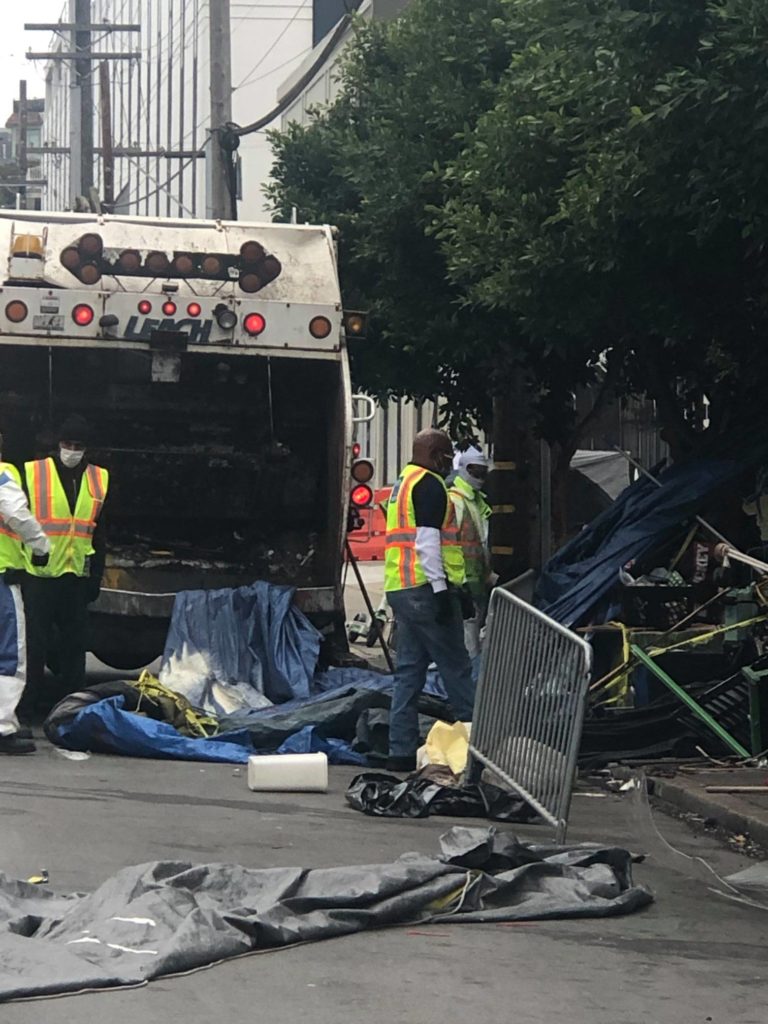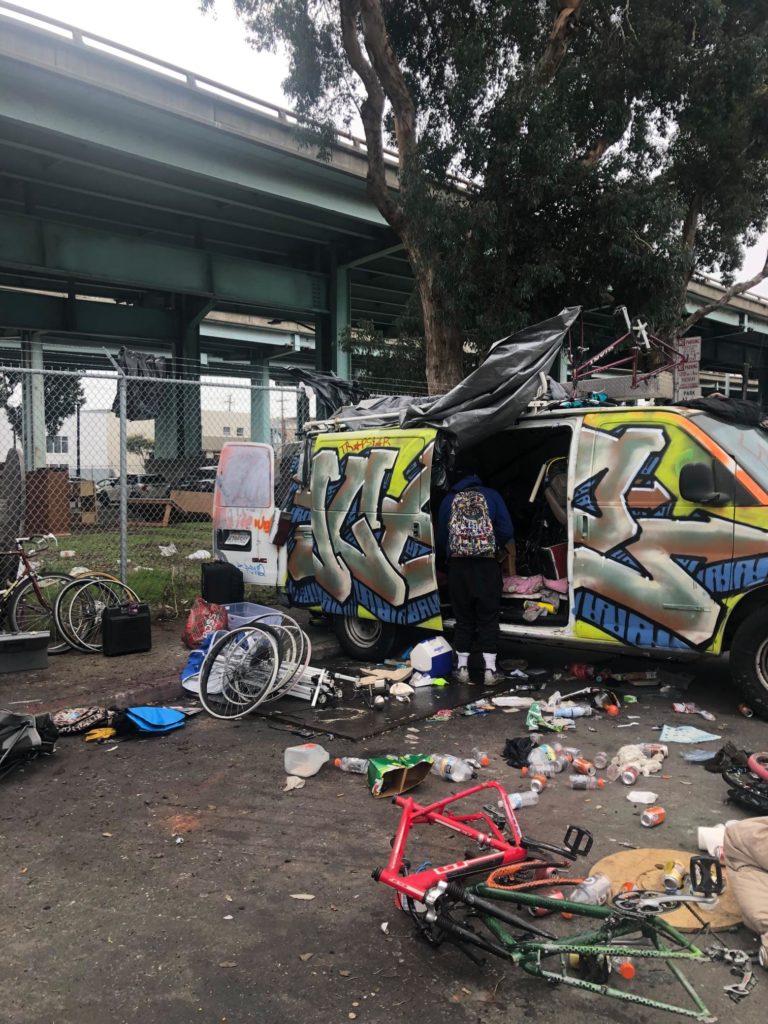The ongoing violence of encampment sweeps in San Francisco
By Jennifer Friedenbach, Executive Director of the Coalition on Homelessness
Linda is a young, petite, Black woman who had just lost her boyfriend to an overdose. This tragic, preventable death is a particularly hard one for loved ones to carry, the “what ifs” and the “if onlys” running wild. For Linda the “what if” and “if only” was housing — she believed her boyfriend would not have died if the housing promised to him had been delivered.
Her boyfriend was homeless, as she had been previously. A particularly harsh supervisor from San Francisco Public Works — the department known simply as “DPW” — had rolled through and promised to house him, told them they would be removed from their spot at San Bruno Avenue and Alameda Street, and warned they needed to be ready. This worker came days before a planned “resolution,” which is not what should happen, nor does he have housing to offer, to threaten and cajole, calling himself “homeless enforcement.” What is supposed to happen, is that Homeless Outreach Team (HOT) members should come, assess, offer services and do work to place people weeks leading up to a resolution. There should be written notices that are helpful, such as who to contact for help. Then DPW should only come after to clean things up, following behind for any garbage.

Linda, deep in grief, got some friends to help and pulled her husband’s belongings together, with the plan to bring them to the storage, to sort through those she would return to his family, and those belongings she would keep. He was an artist and had drawings he had made for her, also jewelry that he had gifted her, letters he had written. Many things she felt were little miracles that had somehow survived the ravages of homelessness.
Her boyfriend, Jay, died on a Monday, and when the DPW workers showed up again the day after, despite that grief, she had already with a group of friends pulled his stuff together neatly on a cart. The DPW supervisor started in, mentioning that he knew her boyfriend had died and that he warned them he was coming and that they needed to have it together. She argued that it was together and tried pulling the cart away. The DPW supervisor shouted that “the next person who takes these things will get cracked in the face” and “I don’t have any problems hitting women.” Linda continued to pull on the cart to get the treasured belongings away, now hysterically crying, and the supervisor knocked the cart over, just missing Linda, and the belongings dumped out everywhere. The workers started picking up items, meanly making sure Linda saw what she was losing, and then tossing them away into the garbage, not even bagging and tagging. She watched letters, artwork all go into the crusher, crying all along. Saving only one message from Jay printed on a gazebo nearby, she in the midst of her grief had to bear this abuse, and the verbalizing of assumptions about her due to her housing status, such as her using dope. Linda said she could tell that some of the other workers were uncomfortable with their supervisor’s behavior.

Linda was careful to point out that the belongings were not soiled — an excuse DPW often uses to throw things away.
I was not there to witness this event, but I talked to four other people who were, and they all said the same thing and worse. Some not feeling comfortable with me repeating, as they were still outside and vulnerable to the whims of state — or, in this case, municipal government — abuse.
I did see the aftermath of DPW actions Wednesday morning, where they showed up, again, improperly before HOT, claiming themselves to be “homeless enforcement” and ripped the tarp down that served as an awning off of a van. They threw away the belongings before the occupants had a chance to wake up, and were told to “put their fucking clothes on” by DPW. They took everything outside of the van, leaving only the garbage. Included in what was taken were the tools of the van occupant, who used them for work.
There were about 50 people camping in this area. Many had been removed from other sites, all of whom I talked to wanted housing. A couple had housing, but the placement was inappropriate and could have been easily solved with a transfer, others were “housing referral status” and had been waiting for a long time for housing placement. This operation could have been carried out in a dignified way — I have seen that before. Instead, it was the very opposite. It was traumatizing, unsettling, and ineffective. There was no partnership with the community to assist, there was no transparency, there was mistreatment and a bad timeline without proper notice. Many of those staying there had been told to camp there by City officials.
All of this hardship could have been avoided, and the outcomes could have been so much better. Instead, the message to campers from the city was loud and clear: “Your life is without value.” But Linda’s life does have value, and her life is beautiful and precious, as was her boyfriend’s. San Francisco needs to make sure she knows that. The best way to show that is through actions that demonstrate compassion, through safe and permanent housing for every person struggling on her streets.

